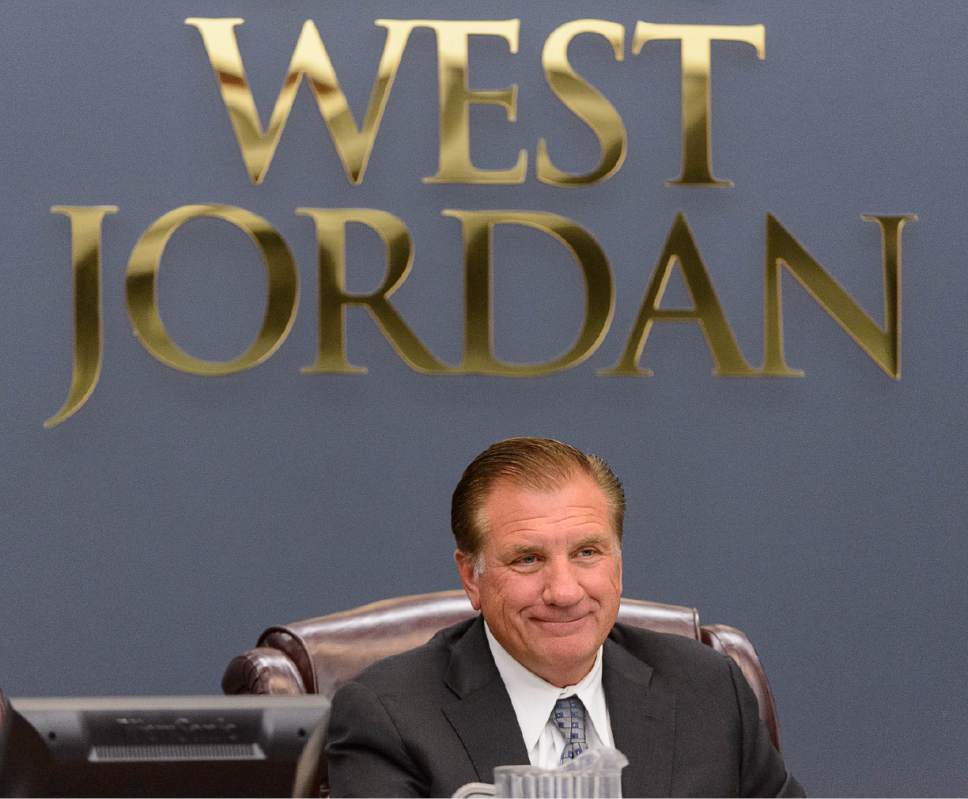This is an archived article that was published on sltrib.com in 2016, and information in the article may be outdated. It is provided only for personal research purposes and may not be reprinted.
Even though some in Utah have expressed sticker shock at the economic development incentives to recruit a Facebook data center, New Mexico is offering the social-media giant an even richer package.
Los Lunas, N.M., has approved a deal that waives 100 percent of the company property taxes for 30 years in exchange for a flat payment from Facebook that starts at $50,000 annually and goes up to $100,000.
On Thursday night, the Los Lunas Council approved a $10 million subsidy to the project from state economic-development funds and a sales-and-use tax rebate that the Albuquerque Journal reported would be worth up to $1.6 million a year.
Project Discus — now widely acknowledged to be the code name in Utah used to preserve Facebook's anonymity during the negotiation process — proposed a similar deal early in the negotiations between West Jordan and Facebook, and is comparable to one that Facebook received to locate a data center in Iowa.
But the flat payments over 20 years, topping out at $300,000 of payment in lieu of taxes, or PILOT, in the later stages of the Utah project, fell flat amid concerns by Salt Lake County and the Jordan School District, which favored a more traditional rebate on the project.
Instead, West Jordan City and the state are offering up their own sizable incentive — $185 million in property tax breaks over 20 years plus another $10 million in sales and energy tax breaks and presumably a yet-to-be-disclosed incentive package from the state.
It is an extraordinary scramble for a project that is, upon completion, expected to employ between 100 and 300 people, yet supporters point to the cachet of capturing a piece of Facebook and believe it will be a magnet to other businesses in the tech industry.
The Utah Board of Education this week placed a $100 million cap on the first phase of the incentive and other conditions on its approval of the package, prompting West Jordan — apparently without checking with Facebook — to announce that the deal was dead, and congratulate Los Lunas on winning the company's business.
But less than 24 hours later, negotiations were back on as representatives of the company and the various taxing entities revived talks that, according to knowledgable parties, are continuing.
Dave Swenson, who teaches planning and economic development at Iowa State University, said the size of the incentive packages that New Mexico and Utah are offering are jaw-dropping. Each state is offering more money to Facebook than Iowa offered combined to land eight data centers — six that are operating and two that are under construction.
''You're not just overbidding, you're just outrageously overbidding. I don't know how to say it any other way other than: What's wrong with you folks?'' Swenson said.
But it's common, he said, for a company — particularly a large company like Facebook — looking to build a large capital project to find two competing cities or pretend there are competing cities and try to leverage them against each other in what he called a ''race to the bottom.''
''In this case, you actually do have active bidding'' between New Mexico and Utah, he said.
But if all other things are equal, why not go with New Mexico's much more generous offer? Well, perhaps not all other things are equal.
Derek Miller, who was deputy director of the Utah Governor's Office of Economic Development and chief of staff to Gov. Gary Herbert, said it's not unusual at all for a company to pick the location that wasn't dangling the juiciest incentives.
''When I was at GOED and involved in these kinds of deals, most of the time — I would say the vast majority of time, 80 to 90 percent of the time — Utah was not the most lucrative incentive,'' said Miller, who is now the president of the World Trade Center Utah.
Miller said he didn't know specifics of the Facebook deal, but in general, when Utah landed companies like Goldman Sachs, Adobe, eBay and Procter & Gamble, it wasn't offering as much as other states it was competing against.
''For us, incentives are sort of the last piece of the puzzle,'' Miller said. ''No amount of incentive can make up for a lack of, No. 1, workforce; No. 2, business climate; and No. 3, market access, whatever that means for the company.''
Occasionally, Miller said, companies were clearly looking to see which state it could squeeze the most out of, and that raised a red flag from the recruitment standpoint.
Swenson said companies are drawn to mid-size metro areas with a reliable workforce and a decent airport. ''They don't want them out in the boonies,'' Swenson said. ''They want it where they can get good talent.''
Twitter: @RobertGehrke



